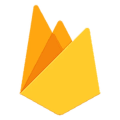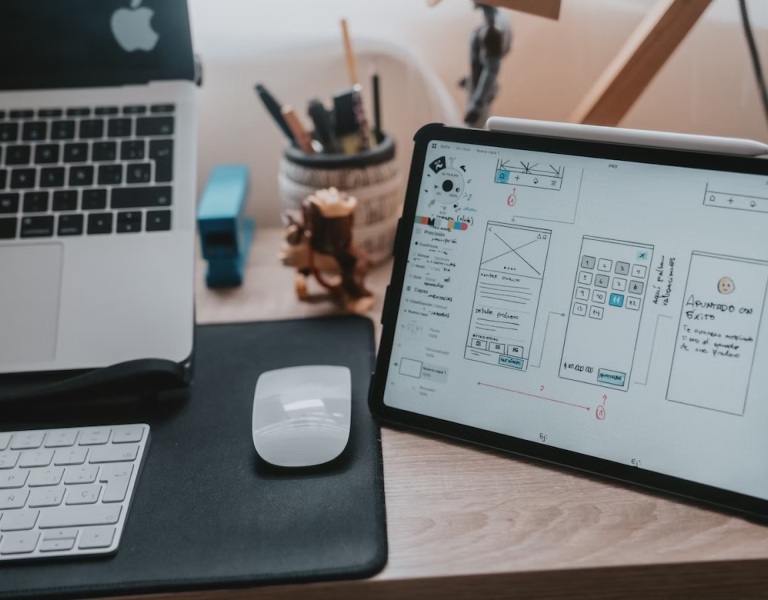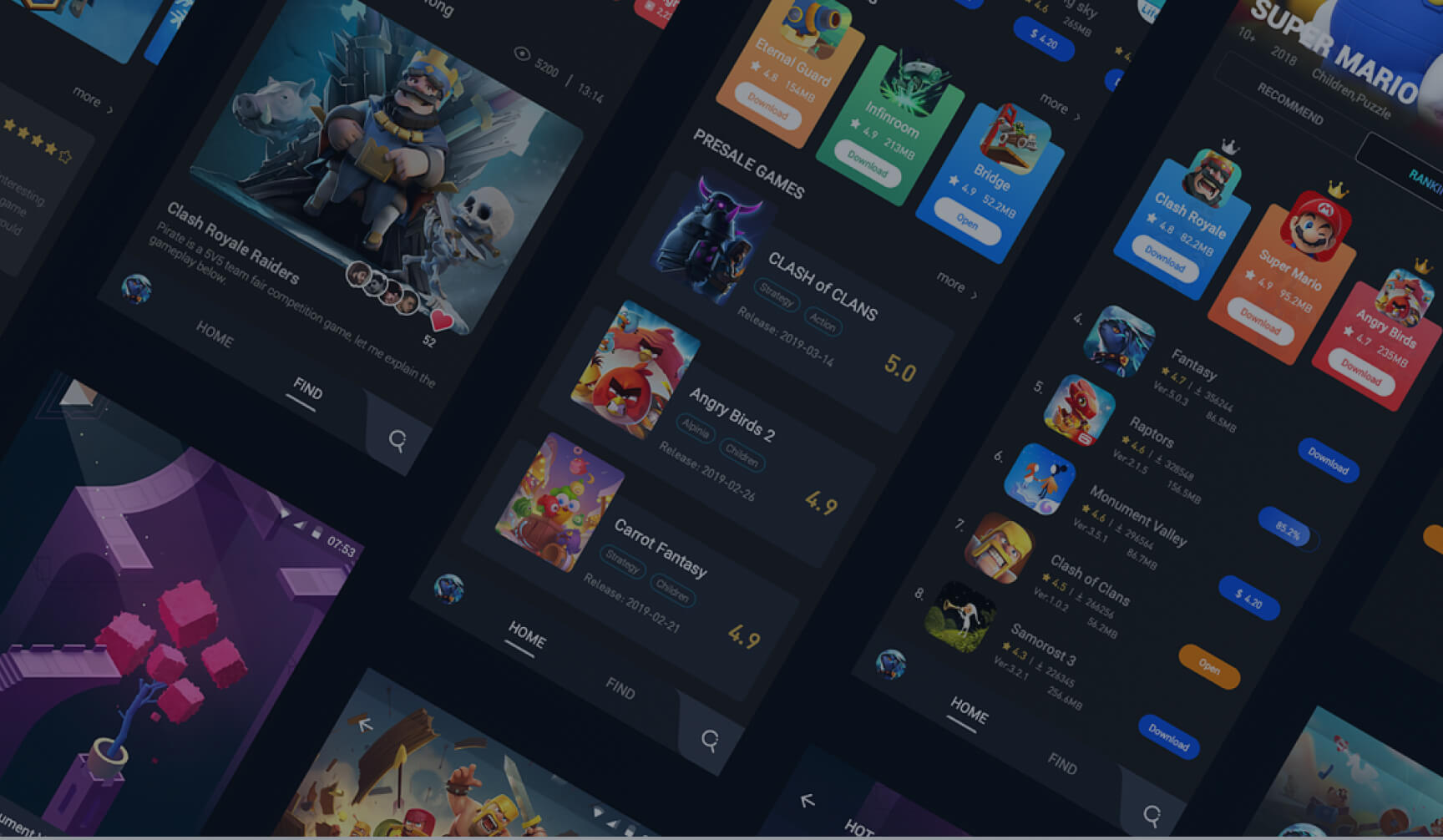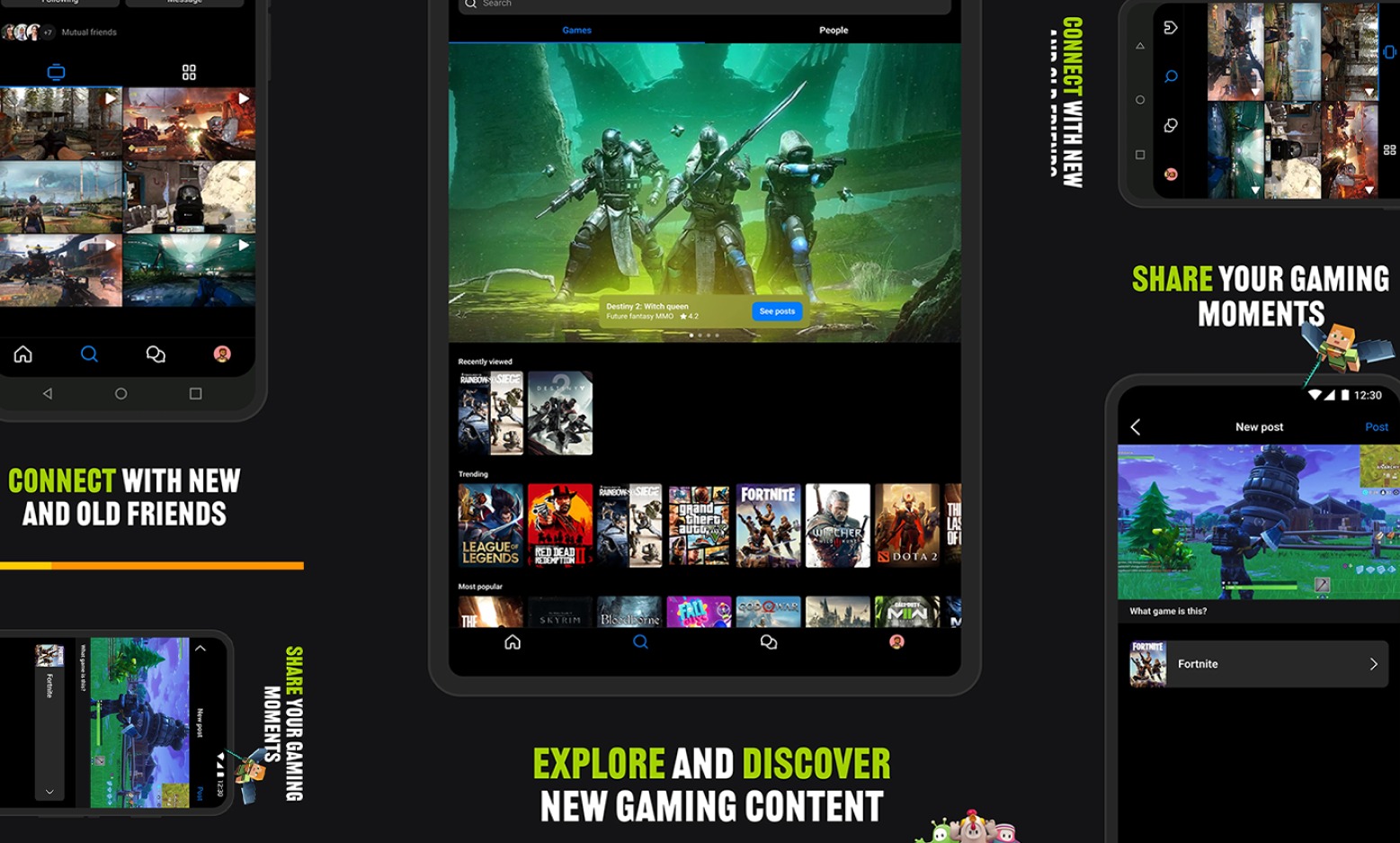They Ideated, We Created
We Developed, and Helped Them Capitalize






All things Flutter, you name it
Enter the world of play with our Flutter game development services
Cross-Platform Flutter Game Development
Using Flutter to it’s true potential, we at Flutter Agency create games that cut across platforms. Flutter’s unified code framework allows us to develop feature-rich (and adrenaline-rich too) games that seamlessly run on iOS and Android-based devices. The cross-platform experience is consistent in nature, making native development costs a thing of the past.
UI/UX Design
Having a fluid UI/UX is key to developing a game. Be it 2D or 3D, a seamless UI/UX experience is necessary for an engaging gaming experience. We at Flutter Agency provide you with a UI/UX interface which is an aesthetic experience for players, so that they can play more and play better.
Game Testing and Quality Assurance
Everybody hates those pesky bugs and game glitches that befall games. QA testing is essential post-development of a game, and at Flutter Agency, we guarantee a flawless gameplay experience when you use Flutter for game development. Through meticulous playtesting and quality assurance processes, we deliver polished games that captivate gamers and pave the way for a game’s success.
Tech Stacks
Technologies fuelling our developing endeavour
How does it work
It begins with imagination
A 360° Flutter Agency
Our Previous Collaborations
Words that matter
Testimonials from Clients
Why us?
The case for Flutter Agency

Idea to MVP
From an idea to an ideal
Origins lie in ideas, the indispensable core of all things. Having an idea has remained paramount in all the innovations that us humans have been capable of producing. The challenge, however, is to materialize the idea. You can count on us to preserve the essence of our idea as we bring it to fruition. Yet, mere existence isn’t our goal, is it? At Flutter Agency, we surpass expectations. Attain the game that you seek exactly as envisioned, and beyond your expectations, courtesy of Flutter Agency.
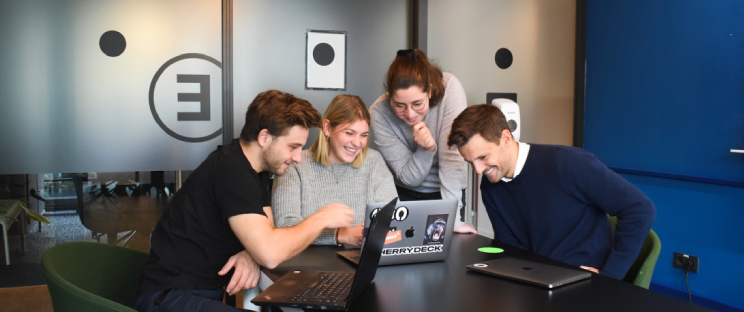
On time, every time
Speedy. Swift. Sleek.
In today’s world where developers overpromise and underdeliver, we at Flutter Agency emerge as your saviours. The assurance that you get at Flutter Agency with our teams of expert developers is second to none, and we will make sure that we uphold this feeling of assurance. Having mastered the art of timely delivery, most of our projects have seen the light of day before deadlines have struck us. And yes, we do so without compromising the slightest bit of quality with our Flutter game development services.

We respond
No holds barred communication
In the vast field of game development with Flutter, communication is often pushed to the sidelines. At Flutter Agency, one-on-one communication isn’t just our strategy, rather it is our defining strength. Success in developing a stellar game lies in seamless communication as well as dynamic dialogue between us and you. This propels us light-years ahead of our competitors, ensuring that the results we deliver are nothing short of flawless masterpieces. Experience transparent and crystal-clear communication when you choose us as your professional game development partner.

We’re here. Or there
Post-Deployment Support
At Flutter Agency, one of our cornerstones of commitment lie in providing impeccable post-deployment support to our clients. We go beyond the established norms, not only fulfilling every service detailed in our agreement, but making sure that you get the total benefit of our customer-centric approach. Our approach revolves around prioritizing the satisfaction of our clients. Though, this isn’t only one of our priorities, rather it’s the very essence of our commitment. Obtain end-to-end Flutter game development services with Flutter Agency.
Tech talk
Some of the Frequently Asked Questions that we get
1. What are the benefits of using Flutter for game development?
Flutter offers a plethora of advantages for game development. Its cross-platform capabilities enable developers to create games for both mobile and desktop platforms from a single codebase, saving valuable time and resources. This is particularly advantageous in expanding the game’s reach to a broader audience without the need to build separate versions for each platform. Additionally, Flutter’s high-performance nature ensures that games run smoothly even on older devices. This is achieved through its native rendering engine, which is not tied to any specific device or platform, making it an excellent choice for demanding games like action or racing games. The hot reload feature in Flutter facilitates faster development and debugging, allowing developers to iterate quickly on game mechanics and user interfaces. Furthermore, Flutter provides a comprehensive set of UI components, including widgets for animated graphics and particle effects, enhancing the visual appeal and interactivity of games. It also grants access to native device features like the camera, accelerometer, and gyroscope, offering the potential to create immersive and interactive gaming experiences.
2. What types of games can I build with Flutter?
Flutter is a versatile framework suitable for a wide variety of games, including 2D games, 3D games, casual games, puzzle games, and action games. In the realm of 2D games, Flutter’s rich set of 2D graphics capabilities enables developers to create visually engaging games. These capabilities encompass drawing shapes, animating sprites, and using particle effects to add depth and dynamism to the gaming experience. While Flutter also supports 3D graphics, it is not as commonly used for 3D game development as some other frameworks. However, there are compatible 3D game engines like Flame and Flutter Unity that can be integrated with Flutter for 3D game creation. Casual games, often characterized by simplicity and accessibility, are well-suited for development in Flutter due to its user-friendly nature and ability to expedite high-quality game production. Puzzle games, which frequently require complex UI interactions and animations, can be effectively crafted in Flutter thanks to its widget-based approach and animation capabilities. Lastly, Flutter can be employed for action games, though optimizing performance for more demanding games may require additional effort. These games typically necessitate high frame rates and fluid gameplay, which Flutter can achieve with careful optimization.
3. What should I look for when choosing a Flutter game development services provider?
When selecting a Flutter game development service provider, several key factors should be considered. First and foremost, evaluate the provider’s experience and track record in developing games using Flutter. Their portfolio should be scrutinized to assess the quality and style of their previous work. Effective communication is paramount, ensuring that the provider can collaborate seamlessly with you throughout the development process and keep you informed. Cost is another significant factor; it’s essential to gather quotes from various providers and factor in ongoing maintenance and support costs. Finally, meet with the provider’s team to gauge their expertise and experience, as the team’s capabilities play a vital role in delivering a successful game.
4. What are the typical steps involved in outsourcing your Flutter game development?
The process of outsourcing Flutter game development typically encompasses several key steps. Firstly, it is crucial to define the project scope, including the game’s features, target audience, and desired outcomes. Following this, you should research and select a suitable service provider that aligns with your project requirements. Preparing a request for proposal (RFP) outlining your project’s requirements and budget will enable you to solicit proposals from potential service providers. When reviewing proposals from shortlisted providers, factors like experience, portfolio, cost estimates, and communication style should be carefully considered. Once you’ve made your choice, establishing a comprehensive contract that outlines the scope of work, deliverables, timelines, payment terms, and communication channels is vital. Collaboration with the service provider throughout the development process is essential, allowing for feedback and ensuring alignment with your vision. Rigorous testing and quality assurance are critical to ensure the game meets your expectations and is free of bugs or glitches. Deployment and launch to the desired platforms follow this phase, and a plan for ongoing maintenance and support should be established to address any post-launch issues that may arise.
5. What are the key considerations for Flutter game monetization strategies?
Monetizing Flutter games involves a variety of strategies that can help developers generate revenue. Some key considerations include in-app advertising, where ads are displayed within the game and developers earn revenue based on ad impressions or clicks. Alternatively, developers can implement in-app purchases, allowing players to buy virtual goods, upgrades, or premium features, enhancing the gaming experience. Subscription models offer recurring revenue, granting players access to premium content or features for a regular fee. Additionally, some developers opt for a pay-to-download model, where players purchase the game upfront. Selecting the right monetization strategy depends on the game’s target audience, gameplay, and market trends. Regular updates, engaging gameplay, and strong player retention are also essential to maximize revenue and create a successful Flutter game.

Ready for the best game developers collaboration?
Ready to create amazing game apps with our expert Flutter developers?
Schedule a CallRide the Flutter wave with us.
Fill the form out, and we’ll ring you up!
"*" indicates required fields

